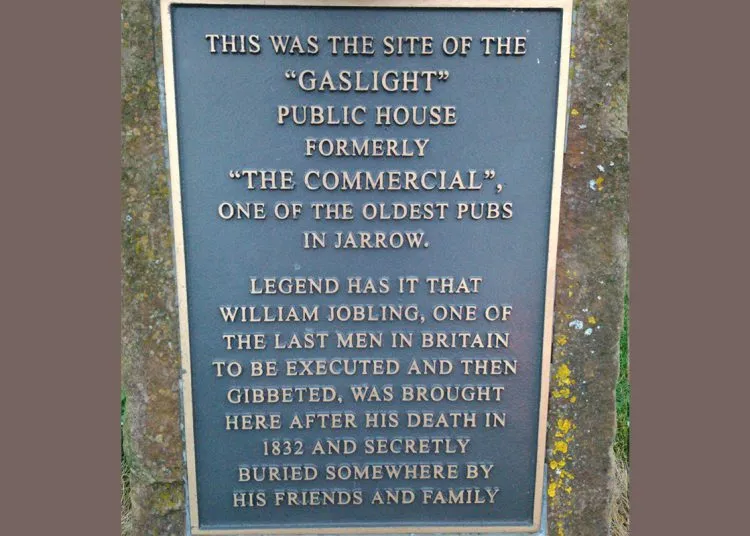UK
Remembering William Jobling, the last man to be gibbeted
William Jobling was found guilty of murder in 1832 at Durham Assizes. He was executed and gibbeted
When I joined Jarrow’s only secondary school as an English teacher in 2003, I determined to build on my limited knowledge of the town and its history. I knew, of course, the story of the Jarrow March, the 1936 organised protest against unemployment and poverty. The backdrop to the story is well chronicled and has placed Jarrow firmly in the national consciousness. Somewhat less well known, though, is the story of William Jobling, a local pitman and last man in the country to be gibbeted.
Jobling was born in Jarrow in 1794. Like most of the male townsfolk, he was destined for the pit. The work was arduous and dangerous: two years prior to Jobling’s arrest in 1832, 40 men and boys had lost their lives in a local mining accident. This was not uncommon.
Moreover, the miners were not adequately recompensed for their labour. Local pitmen would be obligated to sign a bond (effectively placing a cross on a piece of paper), tying them to a pit for a year and a day and accepting payment in the form of ‘Tommy checks’ (vouchers). These vouchers would be used as payment for overpriced goods. So, while the 1807 Slave Trade Act was on the cusp of being enacted in 1833, slavery of sorts was alive and well much closer to home. It is little wonder that 1832 saw pitmen, led by Tommy Hepburn, striking for better pay and conditions – Jobling among them.
In the late afternoon of 11 June 1832, Jobling was returning from the pub (Turners) in South Shields with companion Ralph Armstrong. Near Jarrow Slake, the two encountered 71-year-old local magistrate Nicholas Fairles, who was passing on his horse. The impoverished Jobling begged for money, and Armstrong pelted sticks and stones at horse and rider when Fairles refused.
Fairles died from his injuries ten days later, but had identified his principal attacker as Armstrong – not Jobling. Nevertheless, Jobling was captured on the beach at South Shields and ultimately found guilty of murder at Durham Assizes. He was sentenced to death by hanging. It took the jury only 15 minutes to return their verdict. Armstrong, a seaman, disappeared.
Execution
On 21 August Jobling was publicly executed. Local legend has it that Armstrong was amid the crowd that witnessed the hanging, and shouted an audacious farewell just as Jobling swung to his grim and agonising death. Jobling’s body was then covered with tar and placed in a gibbet, a metal cage built to house the body as it decomposed over several months. Left to sway in the wind, it would stand as a warning to all potential criminals.
Less than a month later, Jobling’s body vanished in the dead of night. The stench emitted from the body would have been putrid. The whereabouts of his body are unknown, but rumour has it that his family buried his remains near the entrance to the modern-day Tyne Tunnel entrance, where a memorial now stands.
Following the pitman’s death, his wife Isabella was destined for the workhouse. His children may well have ended up there too. And only two years later the brutal practice of gibbeting was outlawed – too late for Jobling and his family.
A bleak past
Like many former mining communities, Jarrow has a clear history of subservience at the hands of the ruling classes. The town still bears the scars of its bleak past – statistically, it is one of the most deprived areas in the country according to the Office for National Statistics, and more than half of its school-aged children are eligible for free school meals. Jobling was ostensibly punished for murder but, given Fairles’s testimony and the absence of compelling evidence, his fate can alternatively be seen as a symbol of injustice and exploitation. That’s worth remembering.
First published in Newcastle Magazine

No comments:
Post a Comment